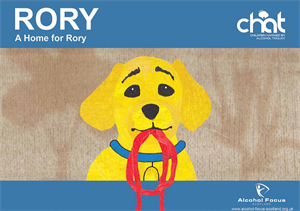News
- Alcohol Emergency continues as latest ONS Deaths Data Published
- AFS Welcomes Parliamentary Vote to Increase MUP
- AFS welcomes HSCSC vote in favour of increasing MUP
- New PHS Dashboard reveals true scale of alcohol harm
- Response to questions regarding AFS funding
- Alcohol related hospital admissions down but alcohol harm still too high
- Stand Firm and Save Lives
- AFS welcome Scottish Government plans to increase MUP
- Levy on supermarkets could raise £57 million a year
- Support for a Public Health Levy on alcohol sales
- First Minister commits to reduce childrens exposure to alcohol marketing
- Survey shows post-pandemic increase in drinking for some
- Scottish Government commit to further plans to restrict alcohol marketing
- Challenge and Change: Rod Anderson
- Parliament must come together to renew and reinvigorate MUP
- A responsible drinking campaign that features cocktail recipes
- Unacceptable rise in alcohol-specific deaths
- Health experts share concerns about complaint made on MUP evaluation
- Decline in alcohol treatment in Scotland
- Challenge and Change: Lived Experience Voices on Alcohol Marketing
- Blog post for Alcohol Awareness Week 2023
- Final verdict on MUP
- Alcohol and diabetes
- Doctors say lack of response on alcohol deaths could spell disaster for Scotland
- MUP reduces deaths and hospital admissions
- Alcohol hospital admissions continue to be too high
- Lessons learned from countries with marketing restrictions
- What is the effect of alcohol marketing on people with or at risk of an alcohol problem?
- ONS figures show highest alcohol deaths on record
- MUP and alcohol sales
- Scottish Government launches alcohol marketing consultation
- MUP and alcohol products and prices
- New licensing policy review guide
- Health campaigners call on Scottish Government to regulate alcohol packaging
- Scottish charity calls for ban on all alcohol promotion
- New NCD Prevention Report - Mapping Future Harm
- Online Alcohol Sales & Deliveries: A survey of young people in Scotland
- Four years of MUP
- Prominent health warnings make drinking unappealing
- Insights from People in Recovery
- Report on alcohol sales and harm in Scotland during the COVID-19 pandemic
- Sugar content in wine revealed
- Alcohol hospital admissions lower during pandemic
- Study reveals those already at risk from heavy drinking bought more alcohol during lockdowns
- Alcohol policy measures could reduce ambulance callouts
- Widespread support for calls to increase minimum unit price for alcohol to 65p
- Three quarters of Scots back new controls to help protect children from alcohol advertising
- More accurate estimates for the burden of Alcohol on the Ambulance Service: around 1 in 6 callouts in Scotland are alcohol related
- How can alcohol labels be improved to help people make informed consumption choices
- Health experts call for better alcohol labelling
- Young people and their views on alcohol marketing
- Lowest alcohol sales in Scotland for 26 years
- Minimum unit pricing has lasting impact study shows
- Euros renews call for action to protect children from alcohol sports sponsorship
- Current alcohol labelling of little relevance to young adult drinkers
- Governments should step up efforts to tackle harmful alcohol consumption
- Scottish public and leading health experts back changes to alcohol labelling
- AFS calls for 65p minimum unit price for alcohol
- How will the main parties prevent harm from alcohol?
- Alcohol labelling reform is way past its sell by date
- Alcohol policy priorities for the next parliament
- Young drinkers believe prominent health warnings on alcohol could boost risk awareness
- Alcohol sales and consumption in Scotland during the pandemic
- How can we prevent alcohol deaths?
- Alcohol Deaths and Minimum Unit Pricing
- YoungScot Health Panel report on alcohol marketing and harm
- Young Scots show support for restrictions on alcohol marketing
- Better alcohol labelling - A way to boost awareness of the risk between alcohol and cancer?
- Alcohol Deaths Prevention Support
- Almost half of Scots in favour of minimum unit pricing
- Health experts campaign for better understanding of Fetal Alcohol Spectrum Disorder
- Health experts call for alcohol labelling overhaul
- Australian ministers agree to visible pregnancy warning
- Alcohol Focus Scotland welcomes new WHO report on alcohol pricing
- Survey shows Scots lockdown drinking rise caused by stress
- Statistical analysis of off-trade alcohol sales in the year following MUP
- Alcohol Focus Scotland Review of statements of licensing policy 2018 to 2023
- We need to continue long-term focus on alcohol
- Scots report changing drinking patterns during coronavirus lockdown
- Time to Blow the Whistle on Alcohol Sport Sponsorship
- New evidence demonstrates that alcohol ads lead to youth drinking
- Alcohol sales fall in first year of MUP
- First study published into under 18 drinkers post MUP
- Two years on Are annual functions reports reaching their potential?
- Scottish primary children call for action on alcohol
- Its time to tell us whats in our drinks
- A home for Rory
- Alcohol sales and MUP
- Lowest alcohol sales in 25 years
- The Children's Parliament investigates an alcohol-free childhood
- Minimum unit pricing one year on
- More about sales data
- A family of resources it is all about prevention, education and resilience
- AFS publish Review of Licensing Board Annual Functions Reports 2017-2018
- Marketing unmasked dispelling the myths and taking a stand
- No place for alcohol marketing in sport
- Scotland publishes first UK guidelines for diagnosing fetal alcohol spectrum disorder (FASD)
- The Alcohol Framework 2018 Preventing Harm
- Scotlands new drug and alcohol strategy launched
- AFS welcome new alcohol strategy
- Recent reporting on alcohol sales data
- Diageo is failing to provide latest guidelines on their products
- Drinks companies keeping consumers in dark about risky drinking
- Reducing alcohol consumption can address health inequalities
- Global first alcohol policy set to save hundreds of Scots' lives
- AFS welcomes minimum unit pricing for alcohol
- Truer picture of alcohol harm revealed
- Alcohol causes 3,700 deaths in Scotland every year
- Scotland's licensing system needs clearer direction
- Minimum pricing blog
- Minimum pricing gets green light
- Alcohol brands and young people
- Time for honest conversations about alcohol
- Q&A on alcohol marketing
- UK children anxious about parents' drinking
- Alcohol producers failing to inform public
- Concern over alcohol-related deaths
- We need to make it easier for people to drink less
- Worrying rise in alcohol-related deaths
- Minimum pricing will save lives
- Pocket money prices for alcohol continue
- Scotland's alcohol problem laid bare
- One drink a day can increase breast cancer risk
- Poverty linked to increased harm from alcohol
- SWA urged to respect minimum pricing decision
- Alcohol-free childhood is healthiest option
- SWA granted leave to appeal minimum pricing
- SWA will appeal to UK Supreme Court
- Minimum pricing can be implemented in Scotland
- Emergency services face shocking levels of alcohol abuse
- Every child has the right to grow up safe from alcohol harm
- Minimum pricing - European court ruling
A home for Rory
NEW - add-on to the C.H.A.T. pack
Work with foster carers or kinship carers? Let us introduce A Home for Rory series of books
Rory is a little dog whose owner has an alcohol problem. Rory thinks it is his fault when his owner sometimes doesn’t look after him. The original book - called Rory - helps children understand that problems like this exist and that it can be difficult to talk about them.
This new suite of books enables a child to explore the feelings they may have when their family circumstances change and they have to be looked after by another family member. Talking about Rory’s situation with a practitioner or carer can help children to understand and discuss their own experience and emotions in a safe and supported way. Although the story focuses on a difficult family situation where alcohol is the cause, it can be used to explore other circumstances which result in a child being looked after by a kinship carer.
There are 4 new books which provide practitioners with resources that can help children and families prepare and cope with the changes in their lives. All the books are designed to help children to:
- Understand recovery and what that may mean for their parent/carer.
- Explore the emotions they may experience as a result of being removed from their home.
- Cope with the anxiety of not being able to see their parent/carer.
The first book, A Home for Rory, sees Rory’s owner Fred trying to stop drinking. Fred’s sister Sophie begins to visit and to help look after Fred and Rory. The book ends with Fred asking Rory to go to live with Sophie whilst he gets the help he needs.
The other 3 storybooks provide alternative endings to the first book, enabling practitioners and carers to choose the ending most appropriate to each child at a given time.
The Feelings Calendar which accompany the books, was suggested by kinship carers, to enable children to express their feelings and to talk about what is happening in their own life. The calendar can be used to guide discussions and can also be useful to inform case conferences, for example, in demonstrating the impact of contact with parents.

